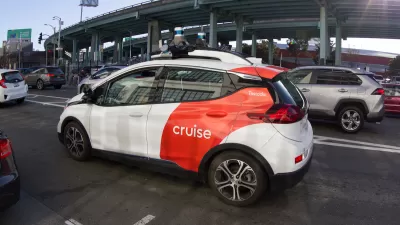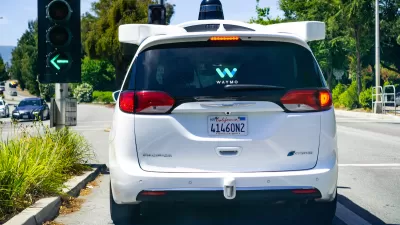As the industry pushes ahead in fits and starts, local officials and first responders are scrambling to develop protocols for handling driverless vehicles.

In an article for The New York Times, Yiwen Lu describes how driverless vehicles are creating headaches for city workers and officials and, in some cases, putting residents in danger. “In San Francisco and Austin, Texas, where passengers can hail autonomous vehicles, the cars have slowed down emergency response times, caused accidents, increased congestion and added to the workloads of local officials, said police officers, firefighters and other city employees.”
In one example from San Francisco, two Waymo autonomous vehicles blocked an ambulance from leaving a scene after picking up a patient, delaying their arrival at the hospital by seven minutes that could have made a difference between life and death.
Now, cities around the country are preparing for autonomous vehicles—and expending public resources—by creating dedicated city offices and training first responders to deal with self-driving cars. San Francisco’s fire chief, Jeanine Nicholson, told the Times that “her department was now at a ‘decent place’ with the companies and added that Cruise’s suspension offered more time to work out issues with the cars in emergency situations. But she anticipated more meetings and adjustments as other self-driving companies moved in.” After issuing controversial approvals in August, California rescinded Cruise’s license two months later.
FULL STORY: ‘Lost Time for No Reason:’ How Driverless Taxis Are Stressing Cities

Alabama: Trump Terminates Settlements for Black Communities Harmed By Raw Sewage
Trump deemed the landmark civil rights agreement “illegal DEI and environmental justice policy.”

Study: Maui’s Plan to Convert Vacation Rentals to Long-Term Housing Could Cause Nearly $1 Billion Economic Loss
The plan would reduce visitor accommodation by 25% resulting in 1,900 jobs lost.

Planetizen Federal Action Tracker
A weekly monitor of how Trump’s orders and actions are impacting planners and planning in America.

Wind Energy on the Rise Despite Federal Policy Reversal
The Trump administration is revoking federal support for renewable energy, but demand for new projects continues unabated.

Passengers Flock to Caltrain After Electrification
The new electric trains are running faster and more reliably, leading to strong ridership growth on the Bay Area rail system.

Texas Churches Rally Behind ‘Yes in God’s Back Yard’ Legislation
Religious leaders want the state to reduce zoning regulations to streamline leasing church-owned land to housing developers.
Urban Design for Planners 1: Software Tools
This six-course series explores essential urban design concepts using open source software and equips planners with the tools they need to participate fully in the urban design process.
Planning for Universal Design
Learn the tools for implementing Universal Design in planning regulations.
Caltrans
Smith Gee Studio
Institute for Housing and Urban Development Studies (IHS)
City of Grandview
Harvard GSD Executive Education
Toledo-Lucas County Plan Commissions
Salt Lake City
NYU Wagner Graduate School of Public Service





























